Avasam, Oberlo, Dropified or Doba?
We’re going to look at all the platforms, being as impartial as we can. (we’re biased, but we think Avasam is great and you should definitely consider it!) First though, we’re going to take a look at a few things you might want to consider as you’re narrowing down your DropShipping platform shortlist.

Creating your DropShipping platform shortlist
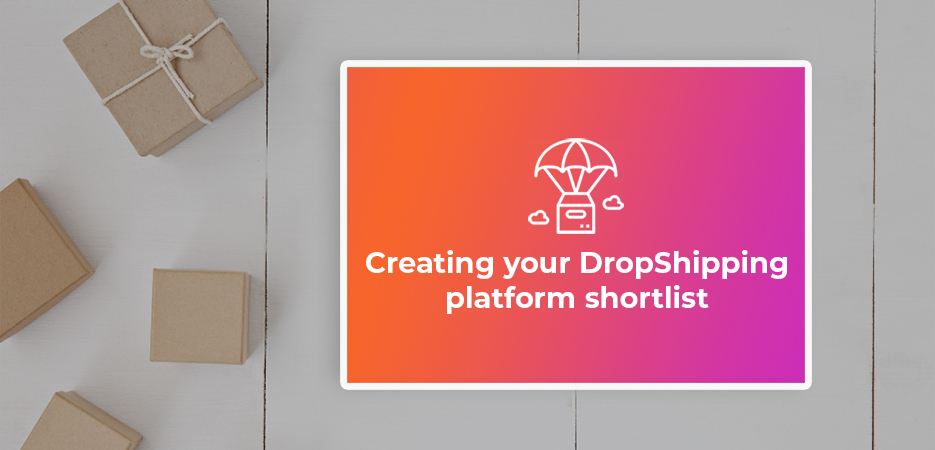
Just like when you’re choosing a new car, you need to establish exactly what your business needs before shortlisting options and testing them out. When it comes to eCommerce businesses, there isn’t a one-size fits all approach. What works fantastically for one business might not be right for another – just like the same car doesn’t suit everyone. So, to avoid needing to change your platform in a year or two (when your business has taken off and you’re scaling up) take the time to evaluate what you need your DropShipping platform to do for you, both right now, and in the future, so you don’t need to spend time evaluating different platforms down the line.
This isn’t an exhaustive list, because every business (or potential new business) has unique needs, and you might need to consider other things on top of these questions. However, you’re likely know the answers to most of these questions already. Here’s some questions we recommend considering.
What do you want to achieve?

There’s lots of reasons to start a DropShipping business, and what you want to achieve from it will almost certainly influence your decision when picking your platform. If you’re starting as a new seller and you simply want to make a little extra cash on the side from your regular job, a free package might be important for you, so you don’t need to pay anything if it doesn’t work. On the other hand, an established business ready to scale up dramatically, might be prepared to pay more to gain access to more products, being able to sell to a particular country, or for certain functionality.
How, and when do you expect your business to scale up?
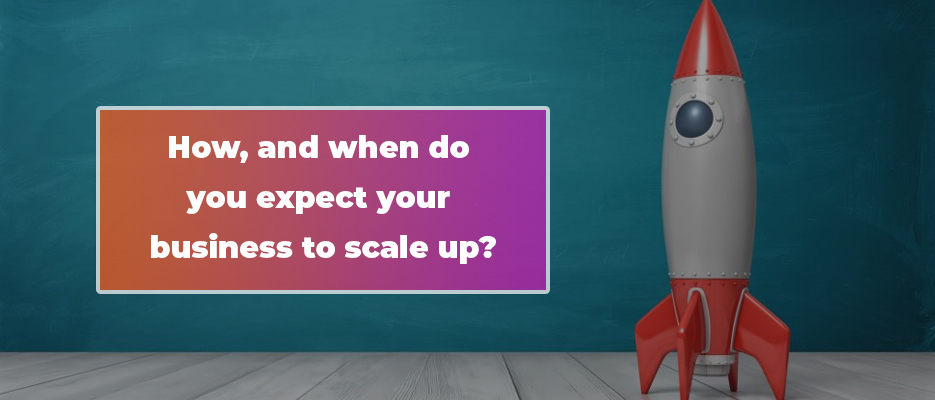
New sellers might not have a straight answer for this, and that’s OK. But thinking about the future is crucial – you don’t want to start using one platform and then end up needing to change in a year’s time. Time spent making sure your chosen platform works for you now, and in the short- to medium-term is time spent wisely.
Who needs to use the platform? (How many users do you need?)
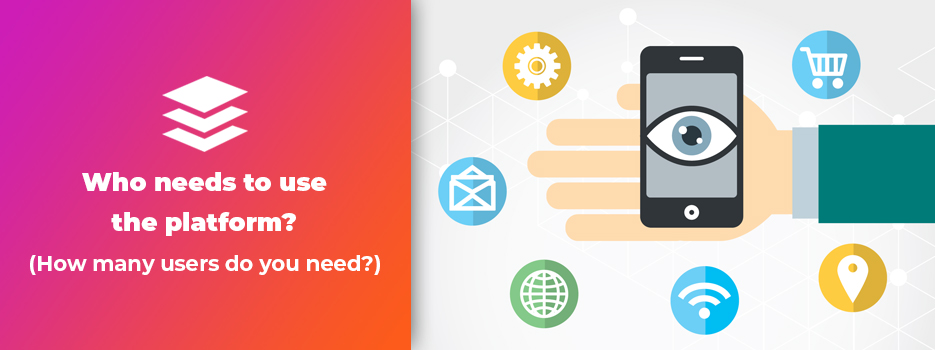
This might be a no-brainer if you’re the only person in your business. But as we said before, think ahead – are you likely to be employing other staff in the future? If you’re an existing business that is adding DropShipping for extra income, having additional users might be important to you. Either way, it’s a good idea to know if you’ll need to pay for extra users.
How much time do you have for managing processes?

If you’re starting a DropShipping business and that’s your sole focus, you might be prepared to sacrifice some automation if there’s other things you feel are more important right now. It might be cost that is an issue, or it might be access to certain suppliers that you’re looking for. Either way, as we said before, think long-term. When is your business going to scale up? If you need to manually download or upload orders, you’ll need to continue to have the time (and patience!) to be able to do that – is that something you have time for? Time you spend on manual processes is time you could be spending on marketing and identifying new opportunities so your business can grow.
Where do you want to sell?

Is it just on your website, or on marketplaces in-country and worldwide? Do you want to be able to place orders in-store, and have them delivered for customers to collect from your retail outlet?
If you’re hoping to scale up quickly and sell through marketplaces like Amazon and eBay, look at the direct integrations available, and for as much automation as possible. Does the platform update price and inventory automatically? This is important, because some platforms may penalize you if you oversell – and that’s before customers leave negative feedback when you have to cancel an order because your supplier is out of stock.
Thinking about scaling up, is there a demand worldwide for the products you sell? If so, you will be considering selling on marketplaces that are popular in particular parts of the world. That might be Trade Me in New Zealand, for example, if you’re hoping to sell to British people living there. Your DropShipping platform should make it easy to sell more, wherever you want to sell, so look at existing integrations and functionality.
What is your biggest pain-point? What do you want to happen automatically?
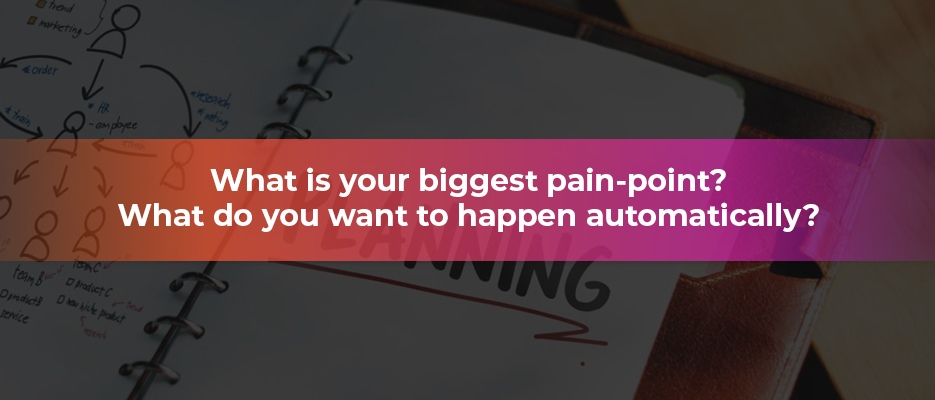
Although you enjoy selling (or you think you might, depending on where you are in your business career!) there’s bound to be something you don’t enjoy quite as much. That might be tackling complicated reporting, sending invoices, or something else entirely. Whatever it is, when you’re considering your DropShipping platform, look for functionality that automates your pain-point. That way, your job is made easier and you can focus on the parts of your business that you love, and you’re able to build your business quicker.
How much can you afford to spend monthly?

Price is likely to be a major concern, particularly for new sellers. However, it shouldn’t be the only thing you’re thinking about! You’ll need to know what you’re choosing has the right tools for your business. You might think price will outweigh functionality if you’re at the start of your DropShipping career, but it doesn’t have to! Some platforms have scalable pricing, so you don’t actually pay anything until you’re making a certain amount of sales per month – meaning that you won’t be out of pocket if for any reason your business doesn’t take off the way you expect.
Here’s a quick glance at prices for the platforms we’re taking a look at:
- Oberlo :- Free to $79.90 per month
- Dropified :- $47 to $127 per month
- Doba :- $29 to $249 per month
- Avasam :- Free to £149 per month
Trial periods are available for most platforms, and (just like in our car example!) we strongly recommend trying them out extensively, so you know that when you decide, your chosen platform will do all the things you want it to. Here’s what’s on offer in the way of trial periods:
- Oberlo :- Starter package is free forever for up to 500 products
- Dropified :- 14-day free trial
- Doba :- 30-day free trial
- Avasam :- Free package available for up to 100 products
Next, we’ll jump in and start looking at what is on offer from each of the platforms.
Oberlo

What is Oberlo?

Oberlo is a marketplace for products you can sell online, with an extension you can use on Shopify and other places. It’s been around since 2015, and is linked to, and owned by Shopify. It actually comes pre-installed on new Shopify accounts.
How does Oberlo work?
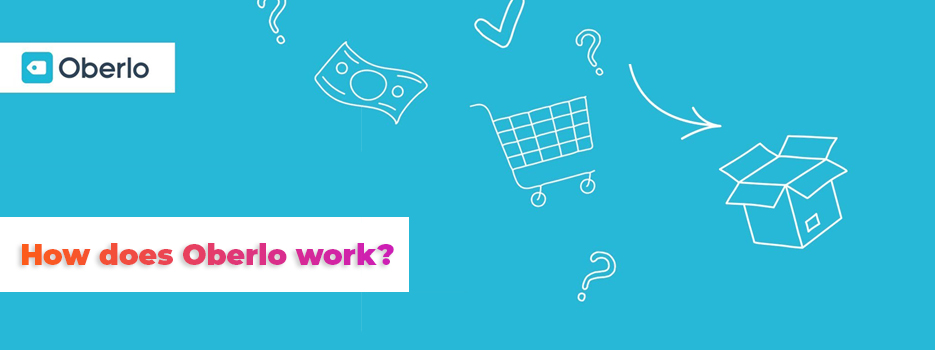
To use Oberlo, you’ll need a Shopify website, where you sell your products from Oberlo directly integrates with AliExpress, and there’s one-click functionality to add products to your Shopify website.
When you sell the product on your website, and an order arrives, you need to click the Order button, and then Oberlo does the rest. The Oberlo supplier sends the product directly to your customer.
Advantages of Oberlo
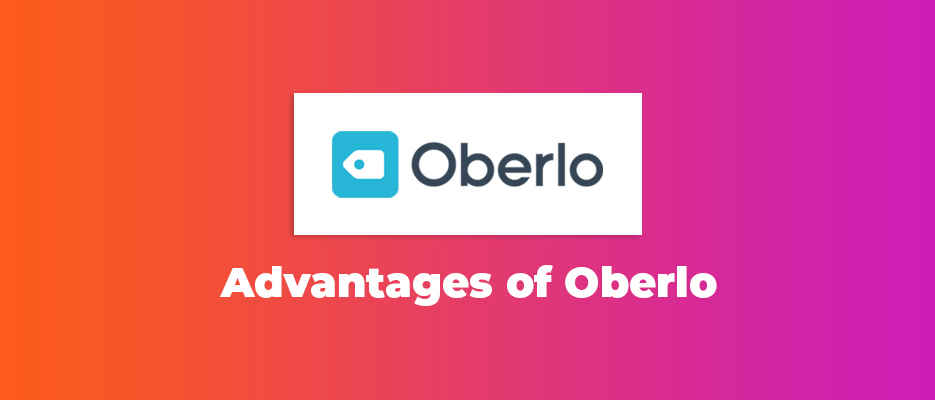
- The Oberlo interface is clear and intuitive – and feels familiar to the way WordPress works. When your orders arrive, you have to click ‘order product’ to trigger the rest of the process. Oberlo takes care of most other processes – updating your inventory and prices, and order tracking.
- There’s a free Oberlo Chrome extension, so you can add products to your store from AliExpress as well as from the Oberlo marketplace within your browser.
- As many AliExpress suppliers are based in China and will send your orders using ePacket, if you choose Oberlo, you’ll probably make use of the ePacket filter. This means you can pick products with shorter delivery times.
- Oberlo is available in a number of languages, including Spanish, French, German, Italian, and Brazilian Portuguese.
- There is a ‘forever free’ starter plan, meaning you really have no risk when starting a new business selling Oberlo products on Shopify.
Downsides to Oberlo
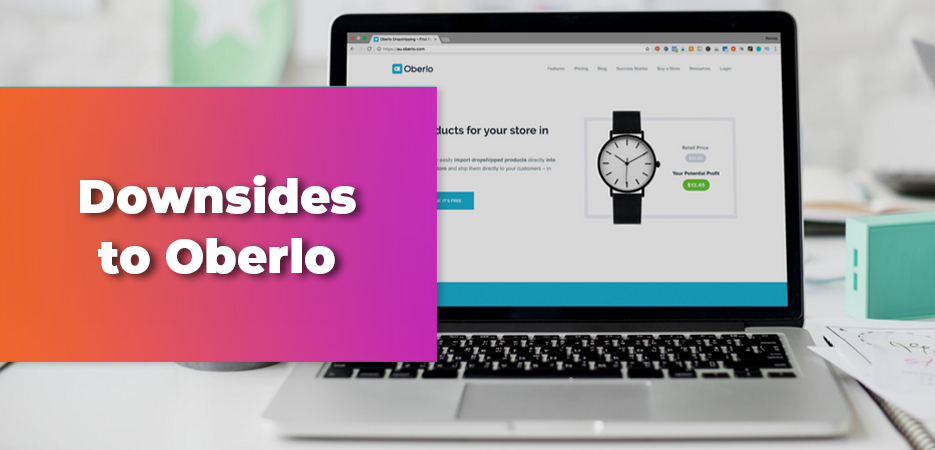
Let’s tackle the big issue first. Oberlo only connects to Shopify. They don’t support any other eCommerce platforms – and we’re not aware of any plans to change that. That means you can’t use Oberlo if you’re scaling up your business by selling on channels such as eBay. That said, Shopify does offer you the ability to sell on other channels, such as Facebook, Instagram and Pinterest. But because of the restrictions on where you can sell, be careful to ensure that Oberlo suits your needs both now and in the longer term.
Although you can work with Oberlo for free on their starter package, when you’re scaling up and need additional functionality, you’ll need to pay. That includes functionality such as variant mapping (where you have the same products, but with different variations – such as colour, size etc) and real-time order tracking. Not only that, you’ll need to pay for your Shopify website package on top of your Oberlo subscription – which, depending on the functionality you need, costs between $29 and $299 USD.
Many of the suppliers on Oberlo are from AliExpress, from China, with long wait times for products to be delivered. Oberlo have recently increased their supplier offering, so this might get better. You can mitigate long wait times by using suppliers that are based in the country you want to sell in, but it’s something you will need to bear in mindwhile you’re testing Oberlo. We recommend managing customer expectations with delivery times – so you’ll need to be upfront about how long customers will need to wait. That could mean customers will order from elsewhere, where they can get faster delivery.
Who does Oberlo suit best?
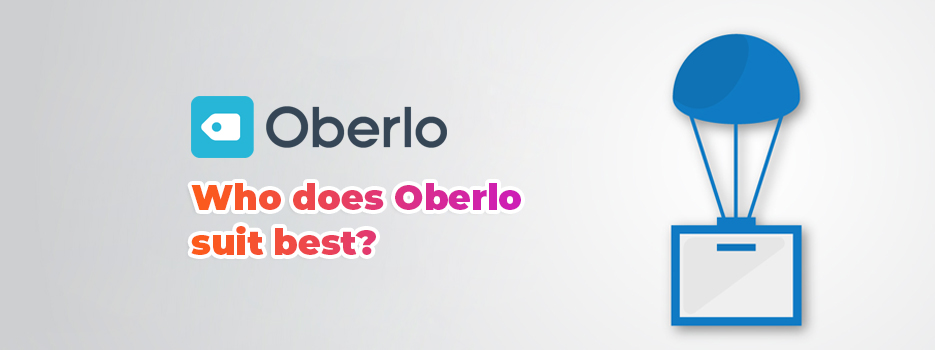
Because Oberlo is so heavily intertwined with Shopify websites, it’s really only suited to people who want to sell on their Shopify website. If you’re expecting your business to grow and that you will want to sell on other platforms such as Amazon and eBay, or you want to sell on international marketplaces such as Trade Me, bol.com or Mercado Libre, sorry, but Oberlo won’t do that for you.
If you prefer to work with WooCommerce or Magento, there are a few solutions discussed in online forums that may allow you to use Oberlo, but they’re not endorsed by them. That means those workarounds might stop working without warning, so be careful. You don’t want to rely on a setup that could mean you lose orders at peak times, do you?!
Dropified
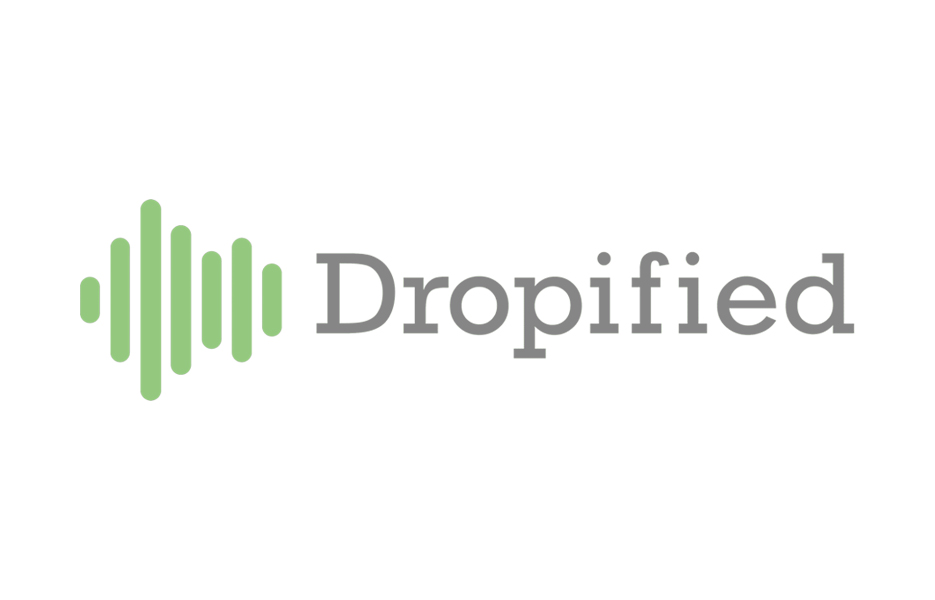
What is Dropified?

Dropified is a DropShipping platform for sellers who want to sell products from their online store, and have their suppliers deal with the rest Dropified connects to AliExpress and eBay suppliers. It launched in 2015, so it’s been around a while, and their main aim is to streamline product sourcing and order fulfilment.
How does Dropified work?
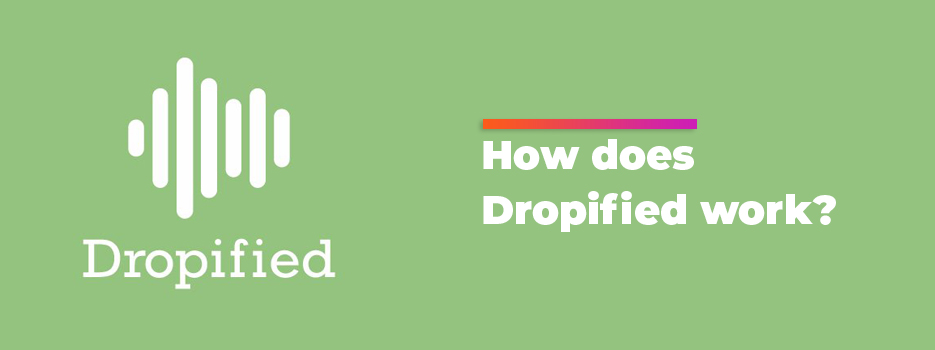
You sign up, and then you find products you want to sell, using the filtering options. You can then export your items to your website or marketplace.
Advantages of Dropified

- It’s quick to set up – a Dropified and WooCommerce combination takes just a few minutes (assuming your WooCommerce website is already set up/established, of course!)
- It’s easy to choose and start working with a supplier, and you can automate order fulfilment and use a Captcha Solver to process orders in the background.
- Dropified can import products from a number of other websites, including AliExpress. Many of these are US-based, or from China, meaning there are huge numbers of products available.
- Because there’s so many suppliers from China available on Dropified, there’s also ePacket integration, with some tracking information supplied automatically.
- If you like automating and streamlining processes (and really, who wants to do things the long way round?!) then you’re probably using a tool like Zapier. Dropified integrates seamlessly with Zapier, so your business can be even more efficient.
- The Dropified ‘Save for later’ function can help you plan ahead – so you can add products you want in seasonal campaigns when you see them through the year.
- You can also import product reviews to your listings, so you don’t have to wait for your customers to review them before benefiting.
- Dropified has a 14-day trial period, and their team offer free support and training.
Downsides to Dropified
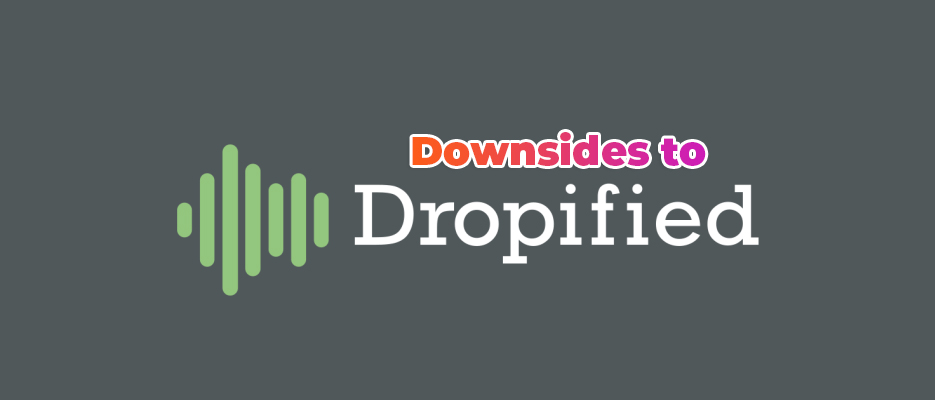
There’s a few integrations available, but not that many, and most of the automation features are linked with, and limited to AliExpress. You can connect Dropified with Shopify, WooCommerce, CommerceHQ and GrooveKart, so there’s a few more options when it comes to your website. However when it comes to marketplaces, you’ll need to upload your inventory manually, so you’ll need to be careful to manage sales and prevent over-selling.
Pricing might not suit beginners. Packages are either $47 or $127 per month, and if you want features such as the advanced profit dashboard, you’ll need to opt for the more expensive package.
There’s no phone support. All contact is via email, Dropified chat, SLACK, or on Facebook Messenger, so if you like to be able to pick up the phone and get support that way, Dropified might not be for you.
Who does Dropified suit best?

Because of the higher pricing, Dropified is best suited to more established companies who want to increase their offering and create more sales, without needing to invest in stock. That might mean an established high street retailer that wants to create an eCommerce presence, but without the hassle. However, more expensive fees and a reliance on AliExpress suppliers means Dropified might not be the right fit for your business, so make sure you make good use of the trial period before making your decision.
Doba
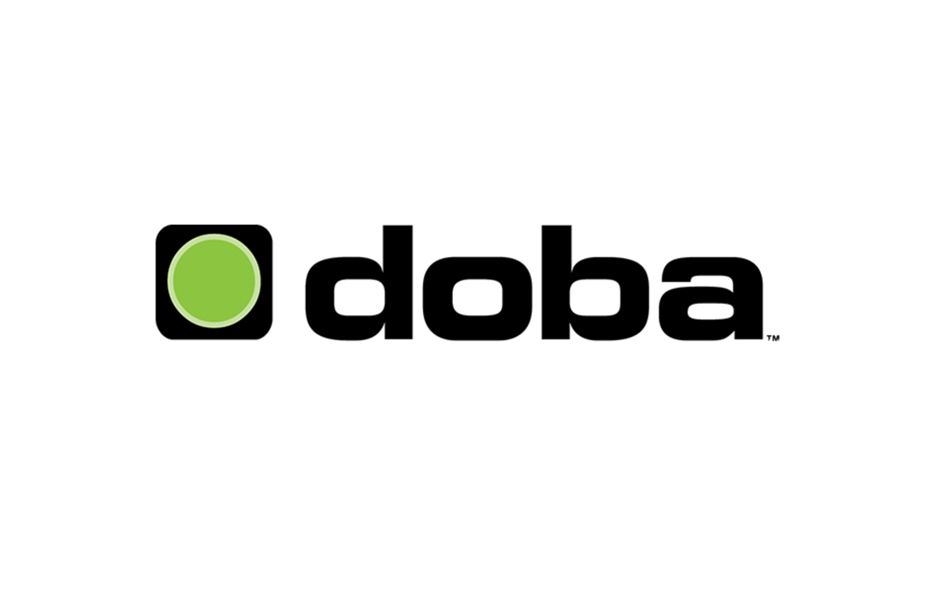
Doba is a DropShipping service, based in Utah in the USA. They have over two million products at wholesale prices on the platform, with automation for high-volume sellers.
How does Doba work?
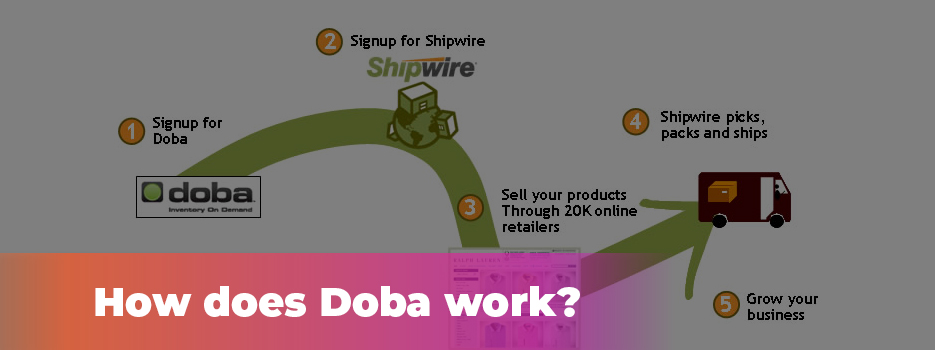
Like Oberlo and Dropified, you sign up and find products using the filtering options. Select your products, and away you go! You make the sales, pay your supplier, and they send the products.
Advantages of Doba?
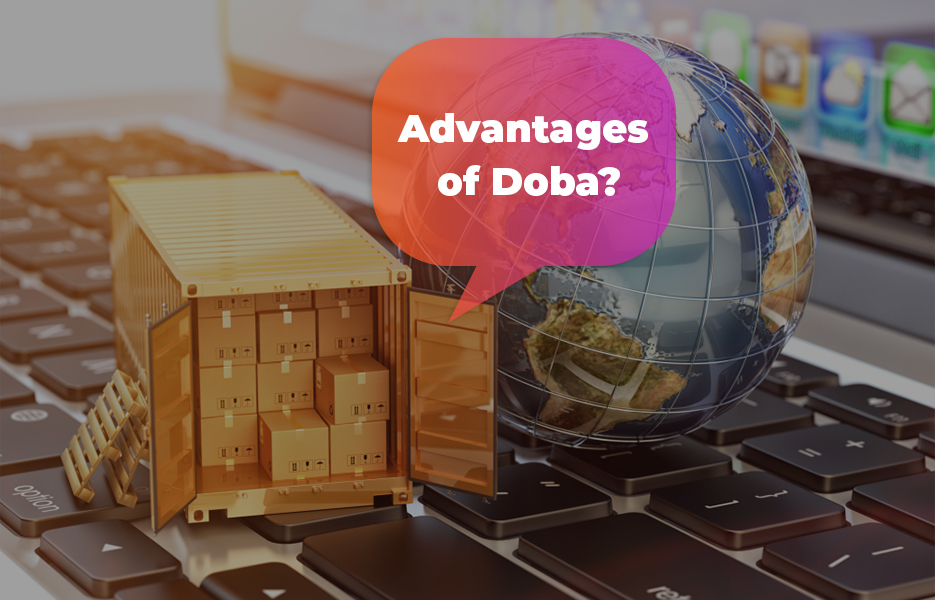
- Doba is easy to use, with useful search filtering.
- You can create your own inventory lists for quick reference. That’s great if you want to be able to see your inventory by the same categories as you have on your website.
- You can download the product catalogue to upload on your website, or on other sales platforms.
- Doba provides notifications when inventory is low, to avoid you overselling – however they won’t actively prevent this, so when you receive a notification, you’ll need to take action.
- There are around two million products listed – that’s quite a good amount of choice for your store!
- Customer service is reported as being consistently reliable. Sellers deal with Doba rather than with individual suppliers, which makes it easier for
- If you’re busy (or just feeling lazy!) there’s in-house staff that can create lists of products in your niche for you.
- There’s a 30-day free trial that doesn’t require your credit card details. After the 30 days are up, you’ll need to subscribe.
- There’s lots of resources to help you get started.
Downsides to Doba?
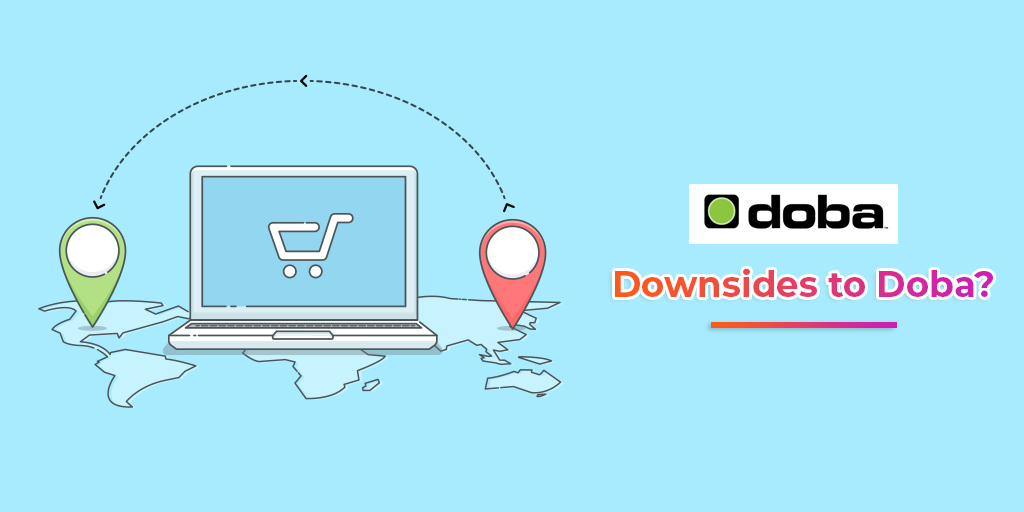
Doba is expensive for newcomers to the world of DropShipping. If you want eBay and Amazon data exports, you’re looking at a minimum of $69 a month, with phone support only available on the Pro plan, costing $249.
Doba doesn’t ship internationally – products can only be delivered to valid street addresses in 48 of the states. However, if you’re an established brand, with access to developers to help manage your setup, Doba could be a good way to serve your US customers.
Doba doesn’t always have the cheapest items. That means your margins might end up being extremely slim, and you might not be able to compete on major platforms like Amazon.
Although there is great documentation to show you how to list on marketplaces, there aren’t any integrations that connect directly to Doba. That means you have to do manual uploads – which could lead to overselling or errors.
Doba has no price comparison facility, and there are no facilities for negotiating prices either. Doba is only a DropShipping platform, you can’t buy in bulk from the wholesalers, so that might not suit you if you’re a high street retailer and you’re trying to extend your offering. With Doba, you’re actually not allowed to build relationships with your suppliers – and you’ll never speak to them! This also means that you must remain a member to continue to sell your items – which might end up being expensive.
Who does Doba suit best?

Doba is a good place to start looking for new products if you’re an existing seller based in the USA. If you’re elsewhere in the world, and want to sell locally, bear in mind your products may take longer to be delivered, and shipping costs might mean you’re priced out of the market.
Avasam
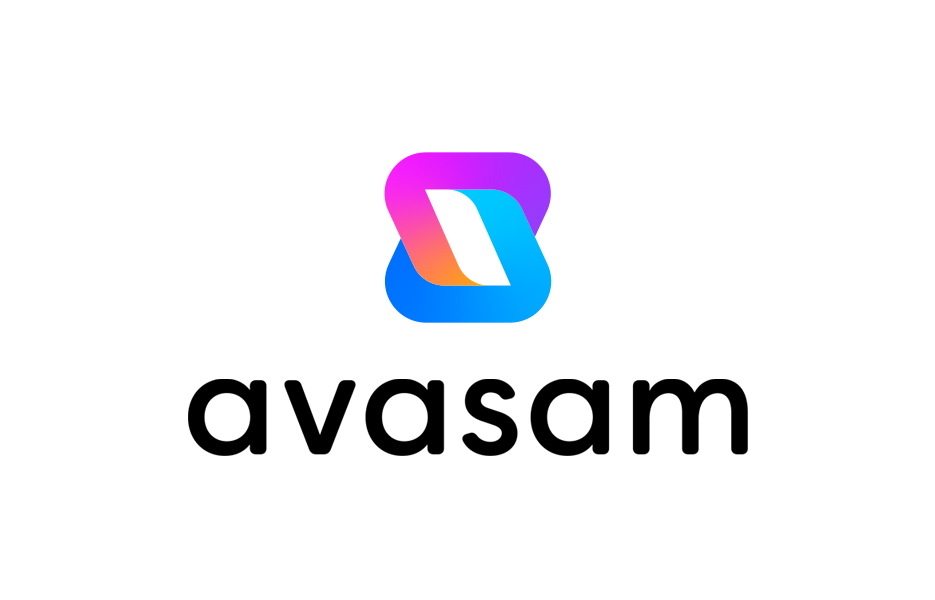
What is Avasam?

Avasam is a fully automated DropShipping platform providing all the tools you need to source and sell quality products from verified suppliers and grow your business. Avasam connects sellers and suppliers on a platform, and connects to existing order and inventory management systems, warehouse management systems, and has over 60 integrations.
How does Avasam work?

You sign up, request approval from your supplier(s), and start selling products straight away. You can sell your products directly on over 30 marketplaces and website providers, and everything is automated – even shipping updates.
Advantages of Avasam
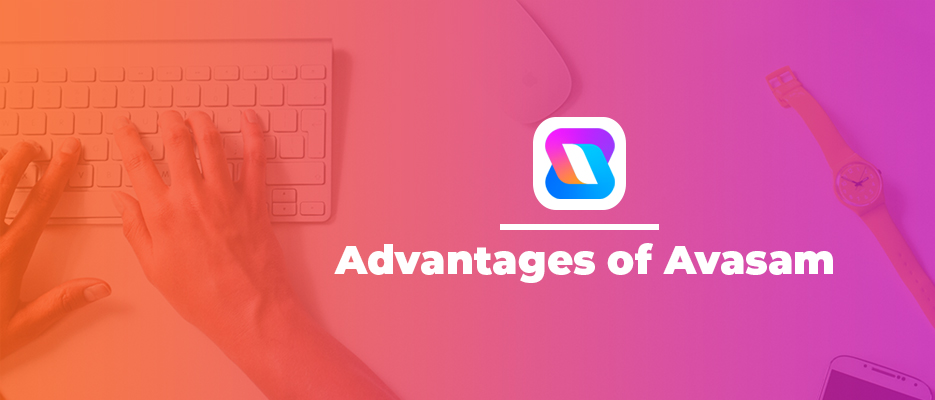
- Over 60 direct integrations to marketplaces, website providers and shipping providers completely automate your DropShipping sales and send automatic updates.
- UK and European-based suppliers. For UK sellers, that means easy communication, no time zone difficulties and fast shipping. Compare that with platforms that work with suppliers in China!
- Suppliers are verified by us, so you can be assured they abide by their service levels.
- You can also check the reliability of suppliers by checking their rating and feedback that is left by other sellers.
- There are no restrictions on the numbers of suppliers or sellers you can work with. You are free to communicate directly with your supplier too – so you can build a great working relationship with them.
- We offer a free subscription option for up to 10 orders per month, and scalable, affordable pricing, so your package only increases as your business does.
- There are no restrictions on the numbers of products – you can sell every single product available from every single supplier if you like! (although doing that might keep you a bit too busy…!)
- Easy to understand reporting to help you monitor your sales more effectively and aid business growth.
- UK-based support team with extensive DropShipping and eCommerce experience.
Downsides to Avasam
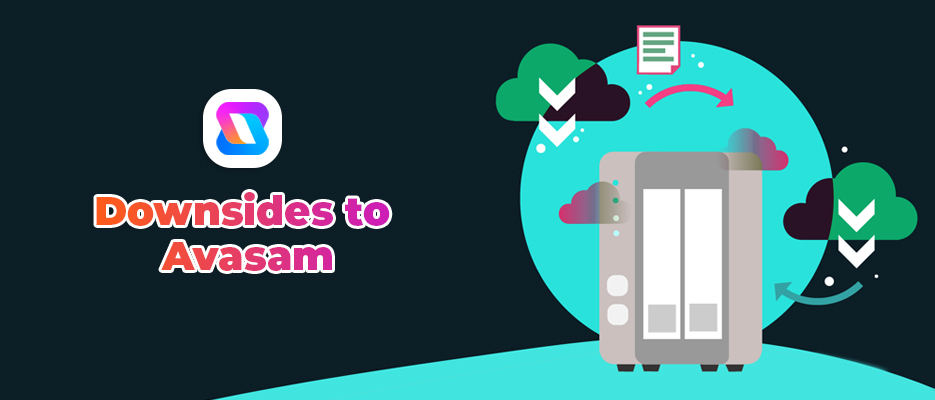
We’re not going to tell you there are absolutely no downsides to Avasam. That simply wouldn’t be true, and you’d probably roll your eyes and want to know what we were hiding! Avasam is a great platform, designed with both sellers and suppliers in mind. What we will tell you, is that our users are very happy, especially those that have made the switch from other DropShipping setups.
But because the world of DropShipping moves so quickly, we have a lot on our to-do list in terms of adding more integrations and functionality. When you’re testing the platform, if you don’t see what you’re looking for, get in touch – it’s very possible what you’re looking for is already on the way! If not, we may be able to provide a work-around for you, or develop the functionality quickly.
At the moment, we don’t have suppliers outside of Europe. That doesn’t necessarily mean our suppliers won’t be suitable for you though – our shipping integrations mean that suppliers have options to ship almost anywhere in the world. We’re actively adding more suppliers every day too, so this is likely to change in the very near future. (Suppliers who would like to add their products to Avasam should contact us – we’d love to hear from you.)
When it comes to integrating with order and inventory management tools, Avasam currently only has a direct integration to Linnworks. However, this doesn’t mean you can’t use Avasam with others. We can help you integrate other systems – and we have more connections planned and in development. (Note that this information only applies to sellers who are already using systems like Linnworks and want or need to continue to do so. For most brand new sellers, this won’t be a problem, because Avasam manages your orders and inventory anyway, and so you don’t need an additional system.)
Who does Avasam suit best?
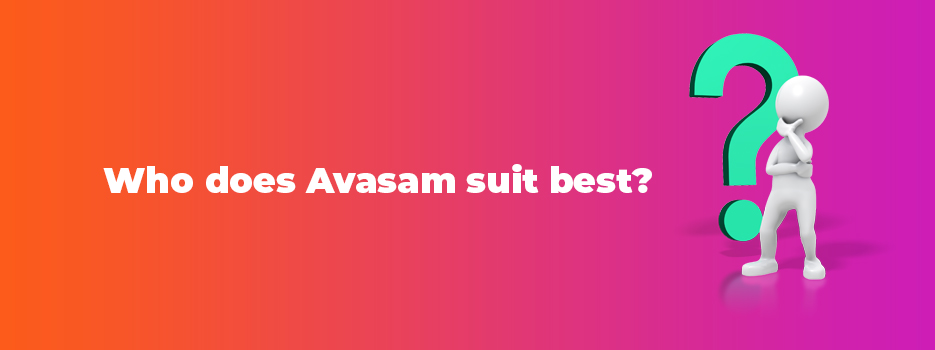
Avasam was designed to be as useful to as many businesses as possible, while making it as easy as possible to start a brand new DropShipping business. We think Avasam is the best DropShipping solution for both new and existing businesses in the UK and Europe. Our scalable pricing model means that new sellers can start selling with absolutely no upfront costs, and there’s no risk to businesses that want to start DropShipping and connect to their existing systems either.
What features does Avasam have that the other three platforms don’t?
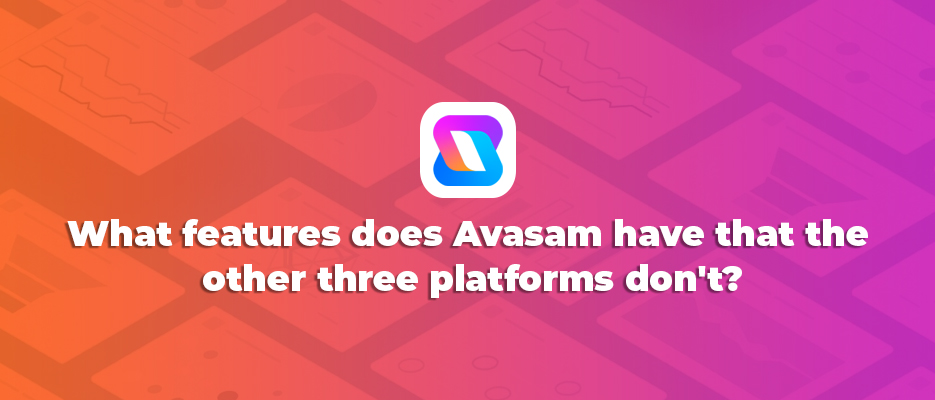
When we designed Avasam, we wanted to make the best DropShipping platform, with the most functionality possible for both sellers and suppliers. That’s why we’re aiming to automate absolutely every step of the DropShipping process, from sourcing to success.
- Integrations with over 60 marketplaces and online selling platforms.
- Other platforms rely primarily on suppliers from China and Asia. Avasam suppliers are in the UK and Europe. For sellers, geographically local suppliers means fewer issues with shipping, communication and time zones.
- Feedback and rating system, and the Avasam Verified Supplier programme make it easy for you identify the best DropShipping partners.
- Processes have easy to customise automation options so you can personalise it for your business.
- Shipping integrations send automatic tracking information to marketplaces and websites.
- At-a-glance reporting options simplifies managing your business.
Other options

While you’ve been searching, you’ve probably come across other platforms other than the ones on this list that you think might suit your business. Whether those platforms will work for you will depend on what you’re aiming to achieve. Smaller platforms might be right for you, or simply working with a single supplier, whether that means sending orders manually or using the supplier’s own solution. We’d recommend, however, not restricting your business if you’re planning to scale up – either now or in the future, so make sure you’ve checked our advice before making your decision. If you’re considering another solution, or you’re just starting out, check out our ultimate guide to DropShipping post.
As we said before, there isn’t a one-size-fits-all solution when it comes to DropShipping. That means you need to do your research, and invest time in testing the shortlist of intended platforms, to ensure the platform you choose really does what you need it to do. You’ll want a platform with a good choice of products, and great suppliers, but when it comes to functionality, we suggest more options is better. Platforms that provide direct integrations with marketplaces and websites provide more automation and business opportunities, and more automation means you have more free time. What you do with that time is up to you – invest it in growing your business, spend it with your family or something else entirely – and that’s the beauty of DropShipping – the choice is entirely yours.

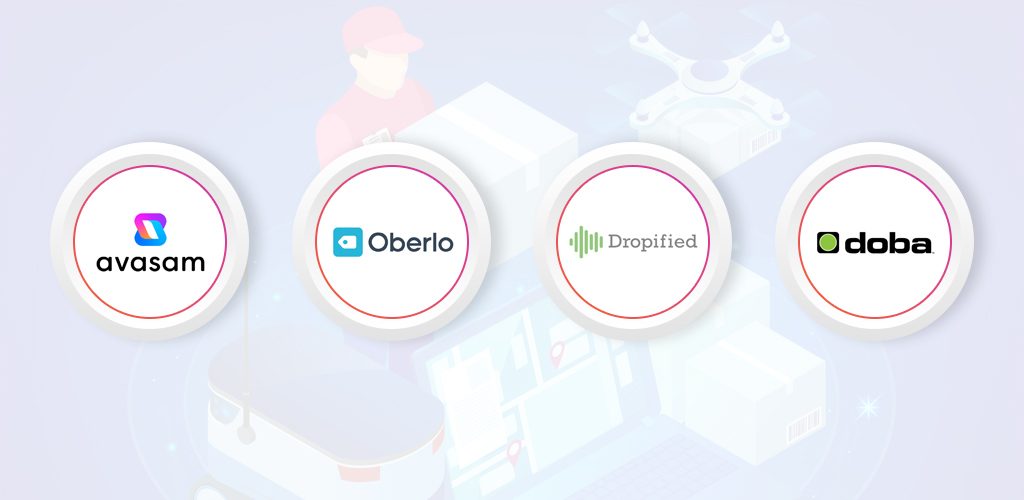

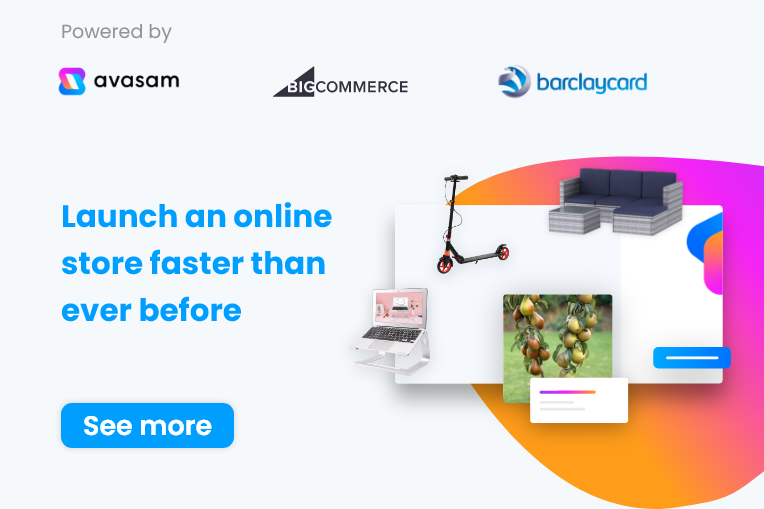

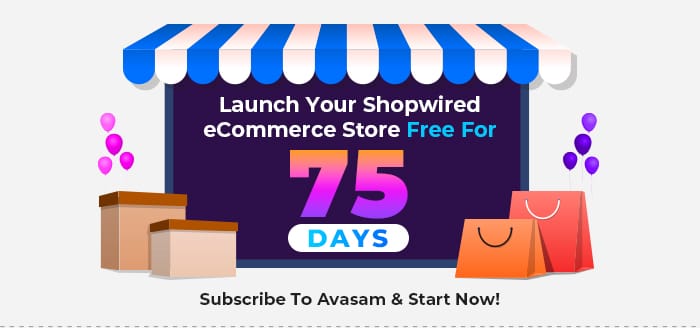


DropShip products from verified suppliers to diversify your inventory and scale your eCommerce business